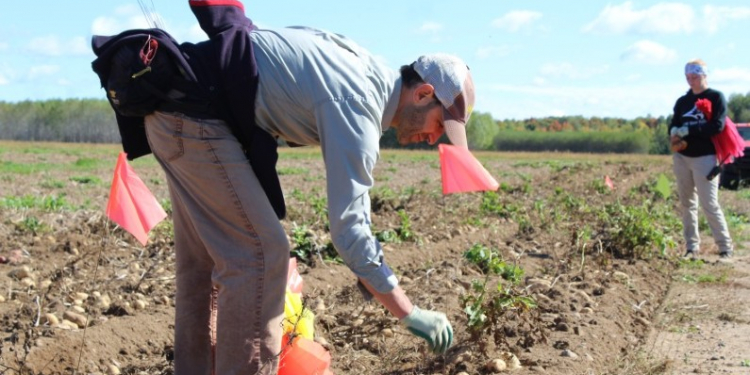Last Thursday, Jeffrey Endelman stood in a windy field east of Rhinelander and fished a diagram out of his fanny pack. “I’m continuing my selections in family number 91, at the moment, as I round the corner,” he explained to Ben Meyer of WXPR. “If I look at family 91, I see who the mother was, I see who the father was, I see how many plants I have.”
These potatoes have passed a ruthless visual test administered by Endelman, a professor of horticulture at UW-Madison and the scientific lead on the school’s potato breeding program.
Endelman was inspecting some of the 170 tillable acres at UW-Madison’s Rhinelander Agricultural Research Station. Over the decades, UW-Madison’s program has become one of the premier potato breeding programs in the country.
Keeping each potato variety disease-free and genetically pure is a top priority, Keeping each potato variety disease-free and genetically pure is a top priority, said station superintendent Becky Eddy. The station’s ultimate goal is to develop potato varieties that appeal to farmers. “Everything here is attention to detail, just with the sheer number of lines and making sure that they all stay intact as that variety,” said Eddy. The station’s ultimate goal is to develop potato varieties that appeal to farmers.
Jeffrey Endelman says about one of every 100,000 cross-bred potato varieties actually makes it to market. “We’re trying to find that ultimate red variety so we can call it Badger,” said Eddy.





